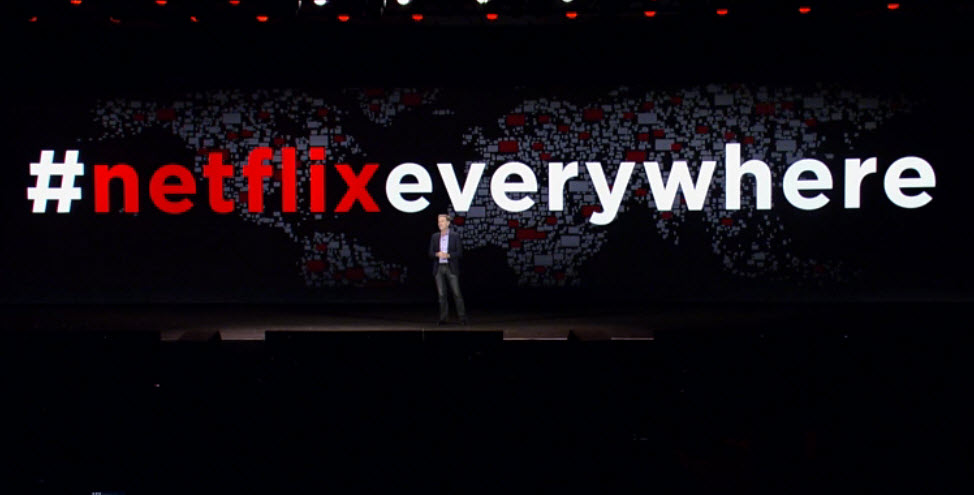New International Netflix Subscribers Disappointed By Lack of Content
What a huge announcement last month, when Netflix opened its doors around the globe in 130 new countries. Expanding internationally seems like an incredibly smart move for the most dominant streaming service, giving them a jump on others such as Hulu and Amazon; both lagging behind outside of the US.
But the early reports from new international subscribers have been a little lackluster so far, as many are now complaining about limited content libraries and Netflix’s new banning of VPNs drastically reducing the availability of content internationally. In other words, if someone in France fakes their location online, they can be granted access to another region’s content library, such as the US or Canada’s, where the largest portion of content currently resides. But this is no longer the case for those less technical.
While here in the US, we have access to thousands of movies and TV shows, abroad those numbers shrink considerably, with several new subscribers in countries like Egypt and Slovenia noting they have access to fewer than 1000 titles in total. Some of the commentary from reviews we have read have been that even in those hundreds of titles, most of it seems like ‘filler’ without anything these new subscribers might actually want to watch. Some new subscribers have even commented that they can’t stream ‘House of Cards’ which in most regions is a Netflix exclusive, strangely absent in a random list of countries.
The major problem here of course being that most of these international subscribers are paying close to the same amount as people in the US, meaning they’re paying essentially the same price for 1/10th of the content.
Now one might argue that Netflix is under-priced in the US and Canada, but this doesn’t do much good for new subscribers in countries that Netflix might view as an afterthought for the time being. In other words, it seems unlikely that Netflix is in a rush to fill the content libraries of smaller countries where a boon of new subscribers might not drastically affect Netflix’s bottom line.
This likely makes it clear that Netflix is going to be aggressively growing its own content library, with global ownership rights, in order to bring a more consistent experience to their service regardless of current location. Content distribution rights are complicated, so it would make sense for Netflix to go big in bulking up and expanding their own movies and TV shows to keep the global audiences happier.
More and more content owners have wised up to Netflix’s massively successful model the past few years and have either raised the price of their content or built their own proprietary services to stream content from. Long gone are the days of Netflix picking up hundreds of new movies and TV shows every month, so they’re certainly making the right moves with original shows. But will this homegrown content library grow fast enough to keep everyone happily subscribed?

